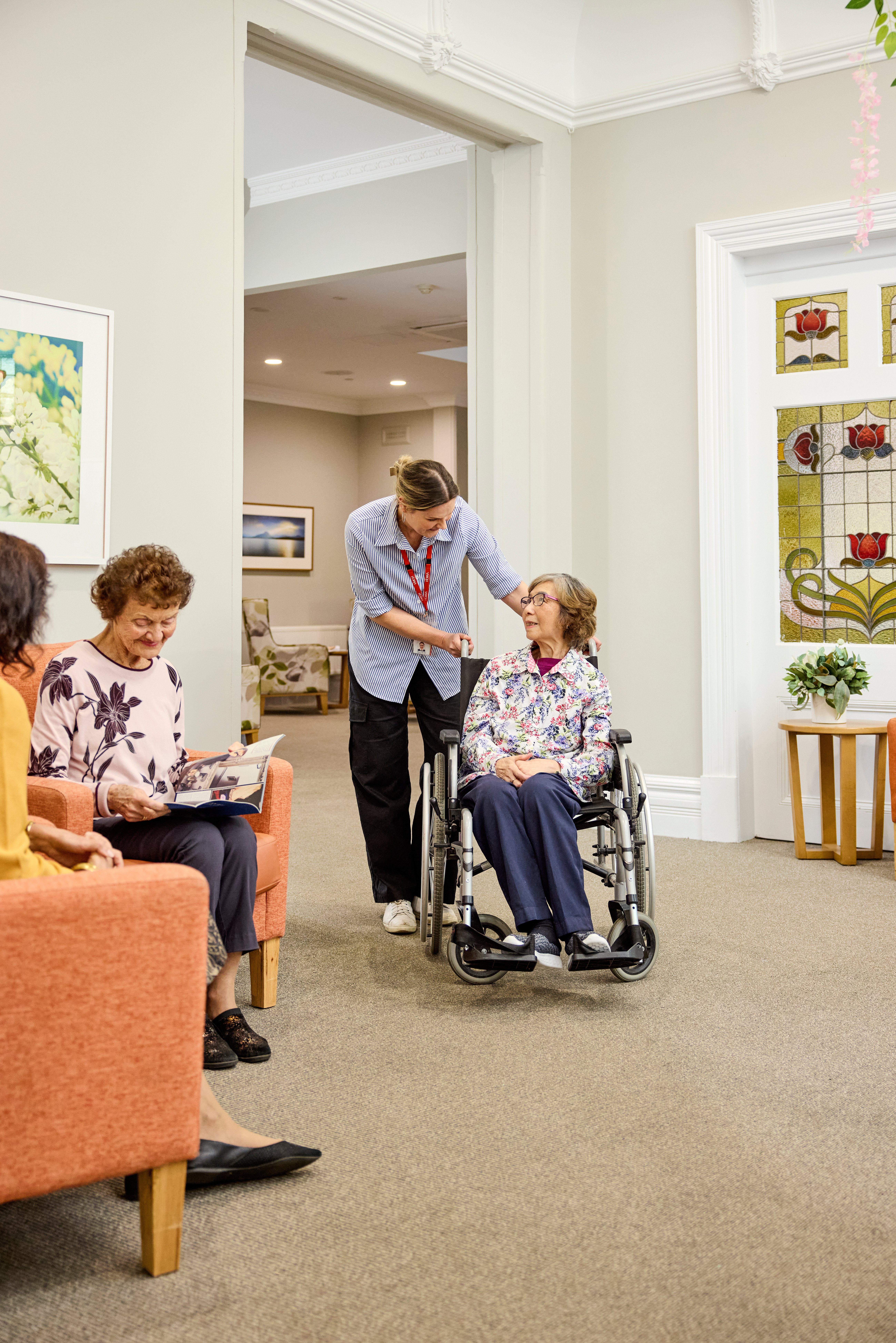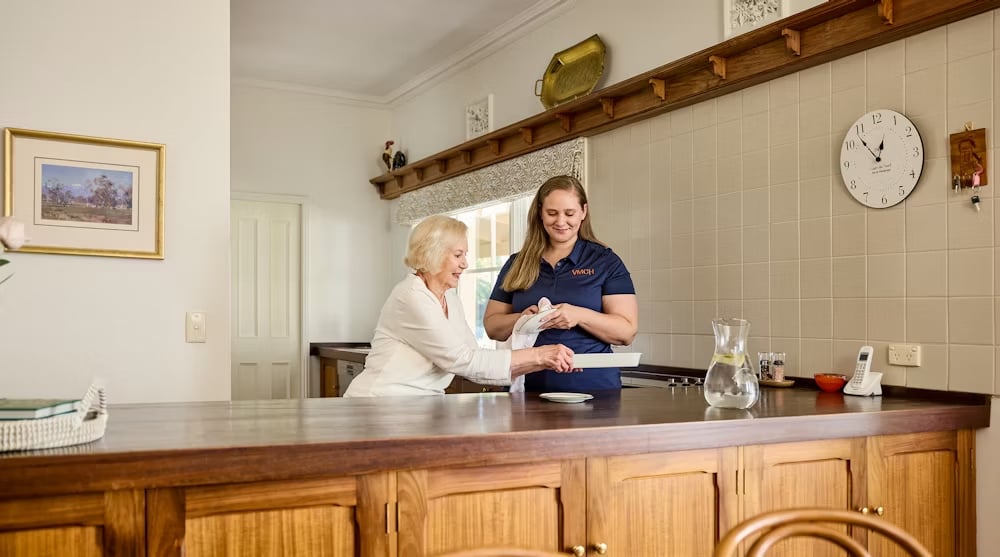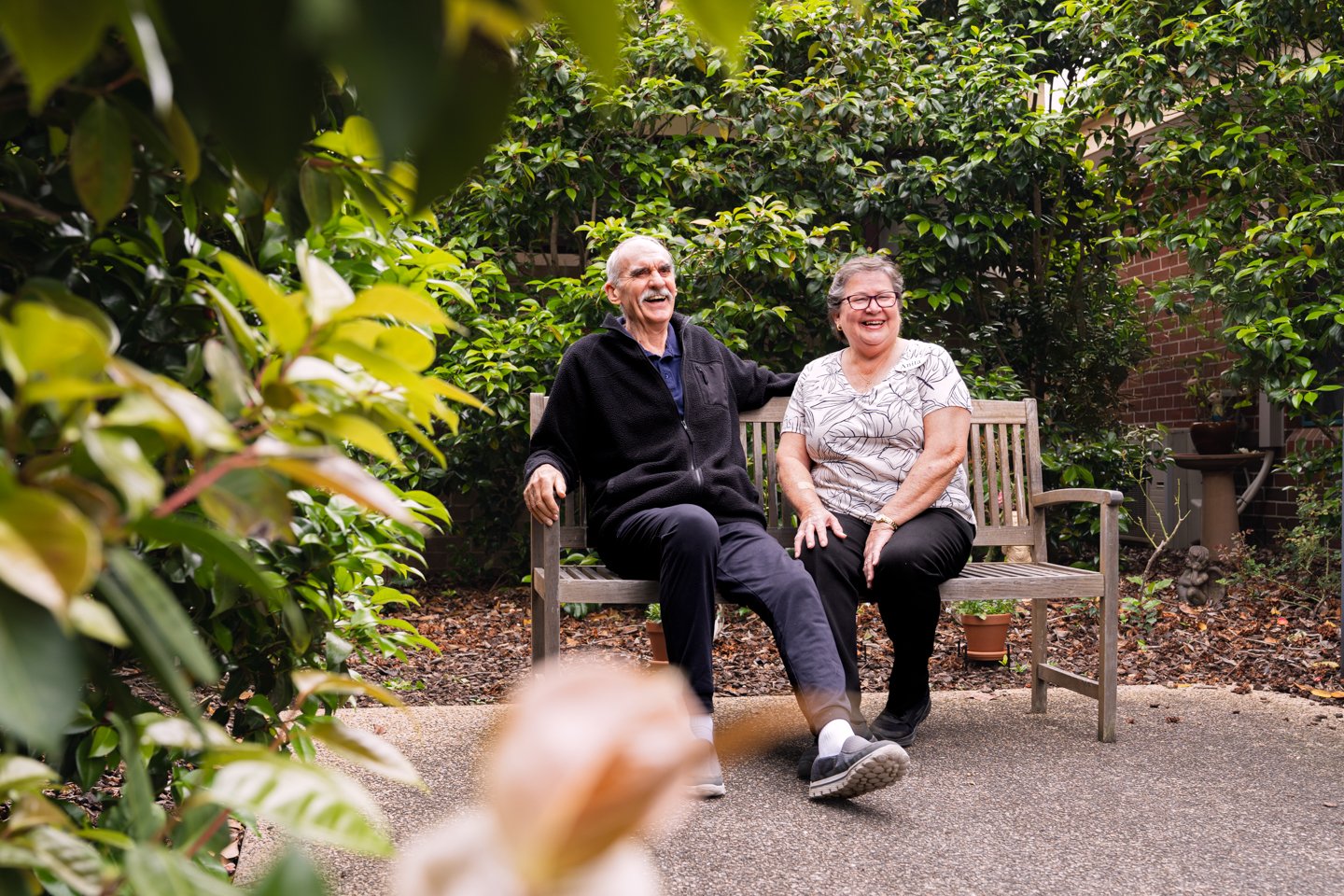Understanding Aged Care Respite
Family commitments, work and the general complexity of life can take a toll when you’re caring for an ageing spouse, parent or loved one.
Thankfully, support is available. Aged care respite might be the solution you’ve been searching for.
Thankfully, support is available. Aged care respite might be the solution you’ve been searching for.

Support for you and your loved one
Respite care gives caregivers a much-needed break while ensuring loved ones are safe, supported, and well cared for. Our team can guide you every step.

The benefits of residential respite care
The foremost benefit of respite is that it enables caregivers to take a breather, prevent burnout and ensure they have time to look after themselves. While it can be difficult to come to terms with, it’s also important to remember that you can’t look after someone if you aren’t looking after yourself.
Furthermore, respite care allows for the care recipient to recover from injury or illness after a hospital stay. Accessing respite at this time provides peace of mind to families, knowing their loved one will receive quality medical care and support while recovering in a fully-accredited aged care residence.

Comprehensive care
We offer the same level of support given to our permanent residents. Our compassionate and trained staff can provide everything from medical support to emotional care. Take time out knowing your loved one is receiving the very best care.

Social interaction
Our aged care residences have a dedicated lifestyle team. Every week there are a range of social activities that help to build community and prevent isolation. A crucial element to maintaining cognitive and emotional wellbeing.

Aged care trial
Making the move to aged care can be daunting. Respite is a great way to trial residential aged care, to start the discussions about moving to permanent care and get comfortable with the idea.
“VMCH gave a lot of moral support, through emails, phone calls and texts. Constant updates on how Beverly was going. And they welcomed us every time we came down to visit. It was just a lovely experience.”
Mark, carer
“The transition was easy. The day Kevin came in, he wasn’t in his room very long and three or four people came in. You know, ‘I’m so and so. If there’s anything you need’. And it was just lovely to hear that. Knowing that we were leaving Kevin somewhere that was caring.”
Leonie, carer
“It’s a lovely place. It’s very nice. I loved my room; I was wrapped with that room! I’ve got nothing negative to say about it at all.”
Kevin, person receiving care

Accessing and arranging respite care
Residential respite care usually lasts at least two weeks, though it can be shorter or longer depending on your needs.
Emergency respite is also available when unexpected situations arise. To access respite care, you’ll need an Aged Care Assessment arranged through My Aged Care. You can call them directly or reach out to the VMCH team for guidance. Once assessed, you can begin exploring local aged care residences to find the right fit—your GP or hospital social worker can also help with recommendations.
How much does respite care cost?
If you book aged care respite, you don’t need to pay an accommodation deposit (also known as a bond). You only need to pay a daily fee to cover the cost of your care. The maximum fee is set at 85% of the single basic aged pension. If you are eligible for respite care, you can access up to 63 days of subsidised respite care in a financial year.
You may also be able to fund aged care respite services through your Home Care Package (HCP), Commonwealth Home Support Programme (CHSP) or through the Department of Social Services.
















